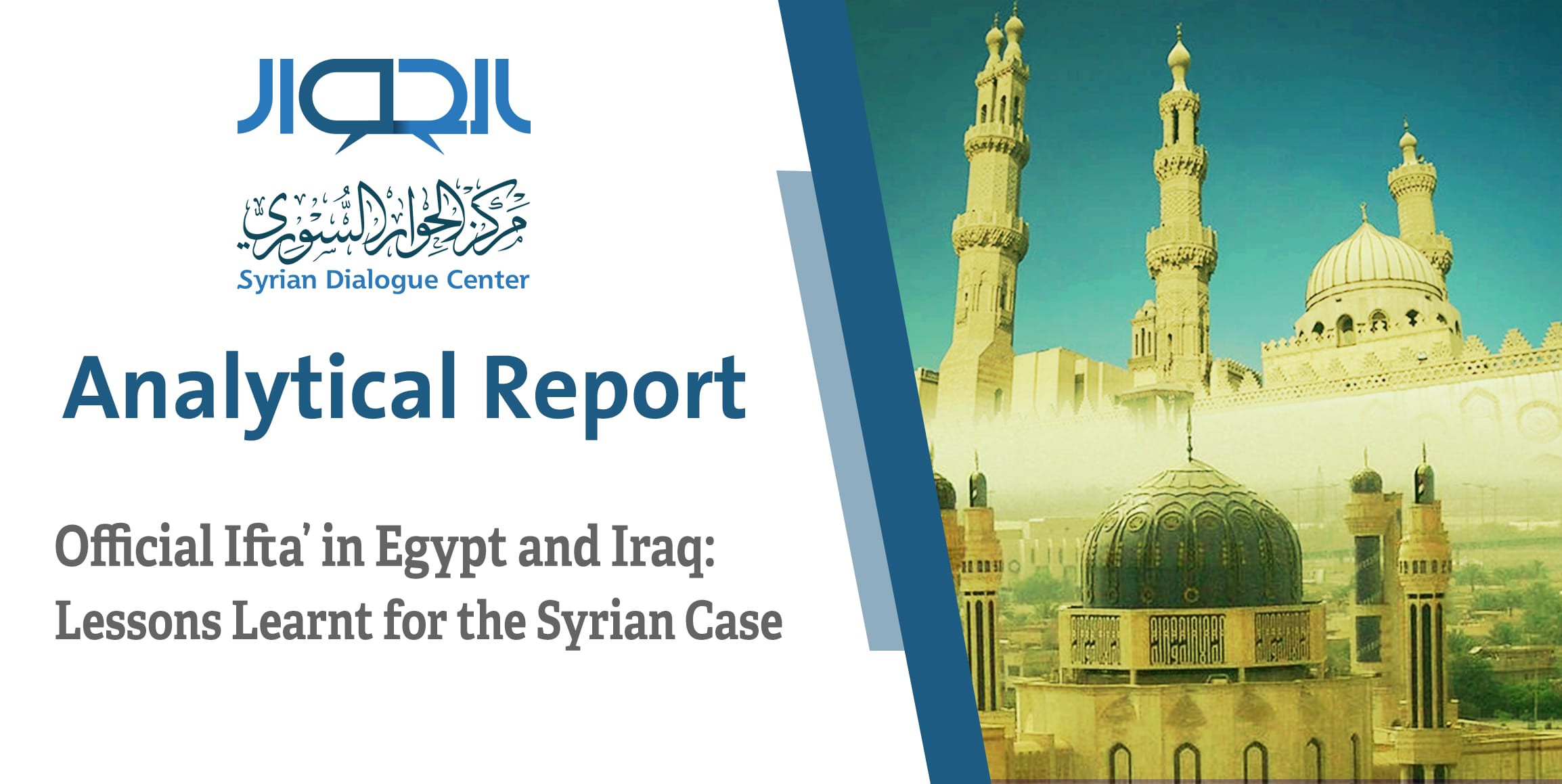
Official Ifta’ in Egypt and Iraq – Lessons Learnt for the Syrian Case
Abstract:
Given the similarities in the birth conditions between the majority of modern Arab states that were formed after the disintegration of the Ottoman empire; this paper sets out based on the assumption that there exists similarities between the institutions that exist and the ones that existed during the Ottoman period. As is the case with the Ifta’ institution, therefore this paper aims through comparative analysis to analyse the cases of the Egyptian and Iraqi Ifta’ institutions. This can help extract the most important lessons that can be beneficial in the Syrian case, through identifying the most affecting factors in the management of this institution, thus predicting its future.
The analysis of Egypt’s official Ifta’ reveals that the responsibilities of Ifta’ is distributed between the Azhar institution and Egypt’s Dar al-Ifta, and that historically Al-Azhar has been the more powerful institution with regards law, science, and is more suitable for this role. Nevertheless, the institution’s expression of political opinions in some periods has weakened its academic independence. Not to mention the state’s relentless efforts to subvert Al-Azhar’s positions towards its cause. In addition to that, the legal guarantees and protections that were in the last Egyptian constitutions were not enough to guarantee this independence of Ifta’, due to there being no honest desire from the state to adhere to such clauses and the absence of other legal guarantees for institutions, the independence of the judicial system being on the top of the list.
In the Iraqi case, the state has made the organisation of Ifta’ in the hands of the “Sunni Endowment Office”, which includes in its structure “The Shcolarly Ifta’ Council” ignoring the nuances of the legal clauses and their details. But still providing legal protection to the Iraqi Fiqh Gathering as an unofficial Ifta’ source for sunnis, in addition to some sort of protection for “Samed’i” that enjoys Iran’s support.
However with regards of benefiting from these experiences for the Syrian case, the paper has reaffirmed the importance of regaining the guarantees afforded to Ifta’s management; such as the election of the Mufti instead of it being an appointed position, and the addition of new guarantees such as a constitutional clause pointing to those guarantees. Especially that these are points that intersect greatly with the fundamental demands made by the opposition and revolutionary forces, so that instead of a completely decentralised approach, Ifta’ management in Syria becomes an administrative body of a special status.
To read the full analysis report (Arabic)
مؤسسة بحثية سورية تسعى إلى الإسهام في بناء الرؤى والمعارف بما يساعد السوريين على إنضاج حلول عملية لمواجهة التحديات الوطنية المشتركة وتحقيق التنمية المستدامة





